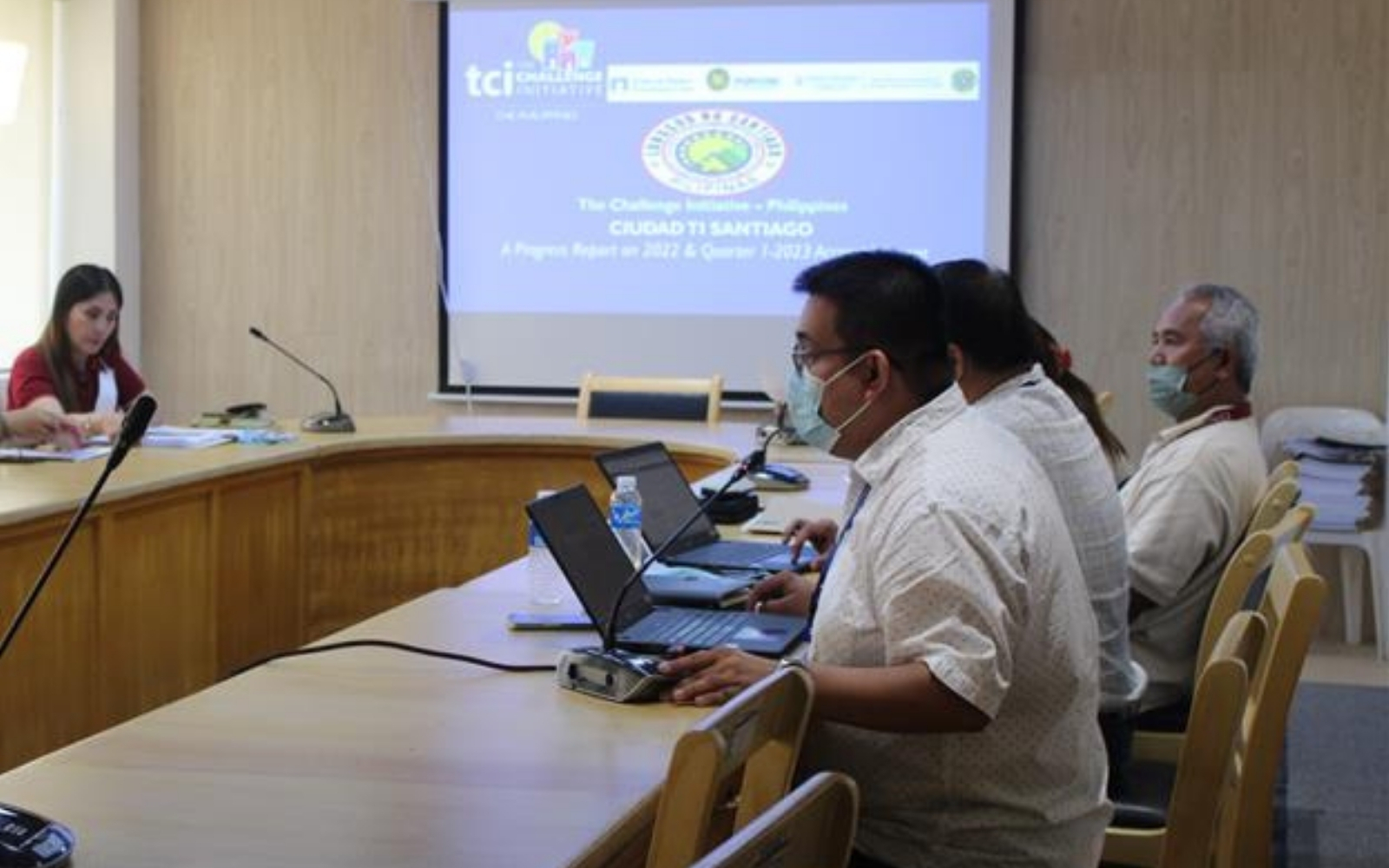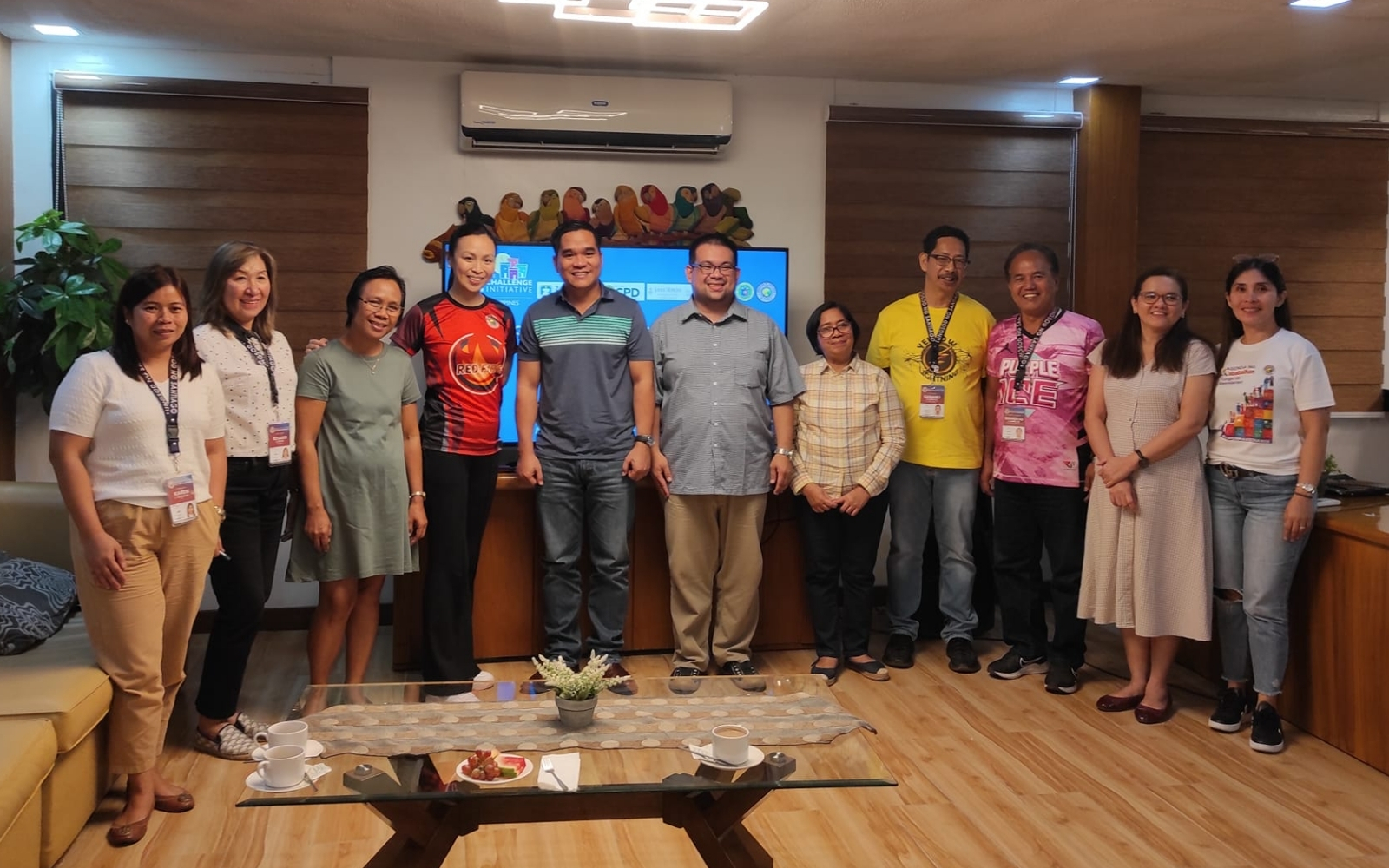Championing Youth: Santiago City’s Fight Against Adolescent Pregnancy
Stories

In 2020, Santiago City faced a serious problem. Its adolescent birth rate was the highest in Region II—47 births per 1,000 girls aged 15–19. That meant too many young lives were being disrupted by unplanned pregnancies. For Population Program Officer Johanna Gabriel, these were not just numbers. She saw dreams put on hold and young futures changed overnight. This crisis unfolded during the COVID-19 pandemic, despite the city having a modern contraceptive prevalence rate (mCPR) of 39%, which was already above the national average of 30%.
A Unified Response: Empowering the Whole Community
Mayor Sheena Tan knew that stopping adolescent pregnancy meant involving the whole city. She reached out to The Challenge Initiative (TCI)-Philippines, co-managed by the Zuellig Family Foundation and the Bill and Melinda Gates Institute for Population and Reproductive Health. The first step was creating a City Leadership Team (CLT)—not just made up of health officials, but also representatives from education, planning, youth sectors, and even young people themselves.
The city’s response fit perfectly with its KAISAKA Development Strategies, which focuses on four pillars:
- Kabuhayan (Livelihood)
- Kalusugan (Health)
- Karunungan (Education)
- Kaayusan (Good Governance)
This meant adolescent and youth sexual and reproductive health (AYSRH) was addressed alongside other core priorities, and not treated as a separate issue.
Making Healthcare Youth-Friendly
Before the intervention, adolescents often felt judged or misunderstood at health centers. There was a lack of privacy, and services were not designed for youth. Santiago City changed this by building 37 community-based and 22 school-based teen centers—safe, respectful spaces designed with and for young people.
Importantly, these centers are now run by trained youth facilitators with guidance from adult mentors. This gives young people ownership and confidence. In 2023, Ordinance No. 11THCC-089 institutionalized the Information Service Delivery Network (ISDN)—a system to make sure youth services remain accessible, consistent, and effective across the city.
Related articles:
- Eight Cities Share Success in Family Planning and Adolescent Health
- Cities Lead the Way in Family Planning and Adolescent Health—Webinar Series to Spotlight Local Innovations
Training and Expanding Youth Reach
One of Santiago’s biggest challenges was the limited number of trained service providers in family planning. The city responded by using TCI tools to identify root causes of high adolescent pregnancy. It also adopted ZFF’s Bridging Leadership approach, empowering local leaders to work with young people in shaping policy.
The results were powerful:
- 638 Teen Facilitators were trained as peer leaders.
- Health workers received essential training in Family Planning Competency-Based Training (FPCBT 1 and 2), Adolescent Health Education (ADEPT), and Healthy Young Ones (HEYO).
At the same time, the city upgraded all Barangay Health Centers and teen centers to Adolescent-Friendly Health Facilities (AFHFs). These were linked to the broader public health system and supported by the Santiago City Youth Code and the Local Youth Development Plan.
Community Programs and Campaigns
The city knew awareness was just as important as access. It launched a range of youth-centered initiatives including:
- Samahang Teenage Nanay na Dakila (STAND) Project – for adolescent mothers
- Kalalakihang Tapat sa Responsibilidad at Obligasyon sa Pamilya (KATROPA) Program – to involve young men
- Project Developing a Responsive Environment for AYSRH Movement (DREAM)
Outreach strategies included house-to-house campaigns, social media content, and tailored Social and Behavior Change Communication (SBCC) materials to bring the right messages directly to young people and their families.
A Brighter, Healthier Future
Santiago City’s bold moves produced real results:
- Adolescent birth rate dropped from 47 in 2020 to 30 in 2024
- The city’s mCPR stayed strong at 36% in 2024, continuing to exceed the national standard of 30%
- More adolescents are confidently seeking care from health providers and peer facilitators
“KAISAKA namin kayo” (“we are with you”) is the heartbeat of Santiago City’s movement. From teen centers to city ordinances, from peer facilitators to youth awards, every initiative is rooted in a belief that adolescents deserve to be supported, informed, and empowered.
As Gabriel shared, it is about building a future where health-seeking behavior is a way of life, and where every young person has the tools and support they need to thrive. Santiago City’s journey continues—with commitment, compassion, and the confidence that change is not only possible, but is already happening.

